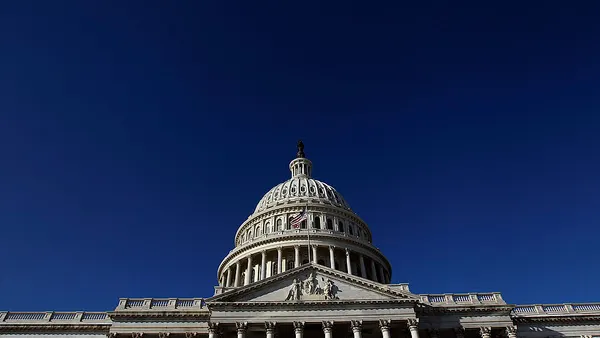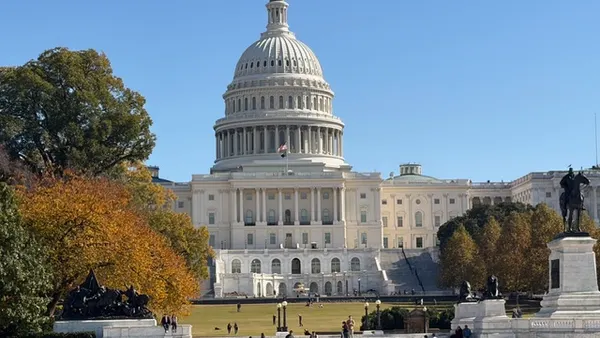Dive Brief:
-
This week, Virginia could become the next state to expand Medicaid. The state legislature is expected to vote in the coming days on a plan that would tax hospitals to fund the added coverage.
-
Medicaid expansion advocates in Idaho say they have enough signatures to put expansion on the November ballot. State officials are reviewing the 58,000 signatures to see whether they meet requirements. Earlier this year, Utah also met the threshold.
-
Meanwhile, Maine Equal Justice Partners, which supports Medicaid expansion, asked a judge to order Maine Gov. Paul LePage to submit a Medicaid expansion plan to HHS. Maine voters approved Medicaid expansion last year, but the Republican governor opposes the measure and his administration has not forwarded a plan to provide coverage for another 70,000 residents.
Dive Insight:
Since the Affordable Care Act allowed Medicaid expansion, 33 states have taken that option and four others are exploring the idea. A number of reports show that expansion has led to increased access and affordability of healthcare and generally has a positive net fiscal impact. While these proposals had been a staple of blue states, more Republican state officials are considering expansion under the current administration's CMS, which has supported conservative policies that stunt the coverage gains.
The Urban Institute recently reported that if the remaining states did expand Medicaid, between 4.3 million and 4.7 million uninsured people would get coverage. Doing so would also increase federal spending on healthcare by between $32.1 billion and $37.8 billion and state funding by between $2.3 billion and $3 billion. Urban Institute said most of the additional state spending would be offset by savings in other areas.
So far, Idaho and Utah activists have received enough signatures to get Medicaid expansion on the ballot this fall. Nebraska advocates are also working to put a similar measure up for a vote. These supporters are pursuing the issue having watched expansion plans die in their Republican-heavy legislatures, but the experience in Maine shows that even a successful vote doesn't guarantee success.
Maine is the only state to expand Medicaid via the ballot box so far, but it hasn't created a plan to actually expand the program yet. The state’s Republican governor has refused to offer a proposal unless the state legislature finds funding to expand the program without raising taxes or tapping into reserves. A recent lawsuit is hoping to push the governor to develop a plan, but Maine may need to wait until the next governor before implementing expansion.
Meanwhile, the Virginia Legislature has a plan that would offer Medicaid to more than 300,000 residents. Virginia officials hope to include Medicaid expansion in a budget plan likely to get a vote this week, which would end months of debate in the state legislature.
While some states are looking to get more people on the Medicaid rolls, some states that have already expanded the program are looking at restrictions to keep costs down.
Arizona wants approval from CMS to limit retroactive coverage to the month of application, instead of three months before. CMS approved a similar waiver from Iowa in October. Supporters say the Arizona Health Care Cost Containment System could save the state $39 million in fiscal 2019. The change may hurt providers and hospitals, especially safety-net hospitals, which rely on Medicaid reimbursements.
Four states, including Kentucky, have received Medicaid waivers that allow them to implement work requirements for able-bodied beneficiaries. More states are interested in creating their own work requirement, but a recent report warned these eligibility restrictions hurt even those Medicaid recipients who do work.
The Center on Budget and Policy Priorities said work requirements will result in more uninsured Americans, worse access to care and less financial security. The requirements also won’t push more people to employment, the report said. “Many of those losing coverage will either be eligible people who lose Medicaid due to red tape or workers with unstable jobs who experience gaps in employment or can’t find enough hours of work every month,” according to the report. It also said the proposals would not necessarily save money, but instead could lead to “large costs for states, the federal government and healthcare providers” if people with serious illnesses lose Medicaid coverage.












